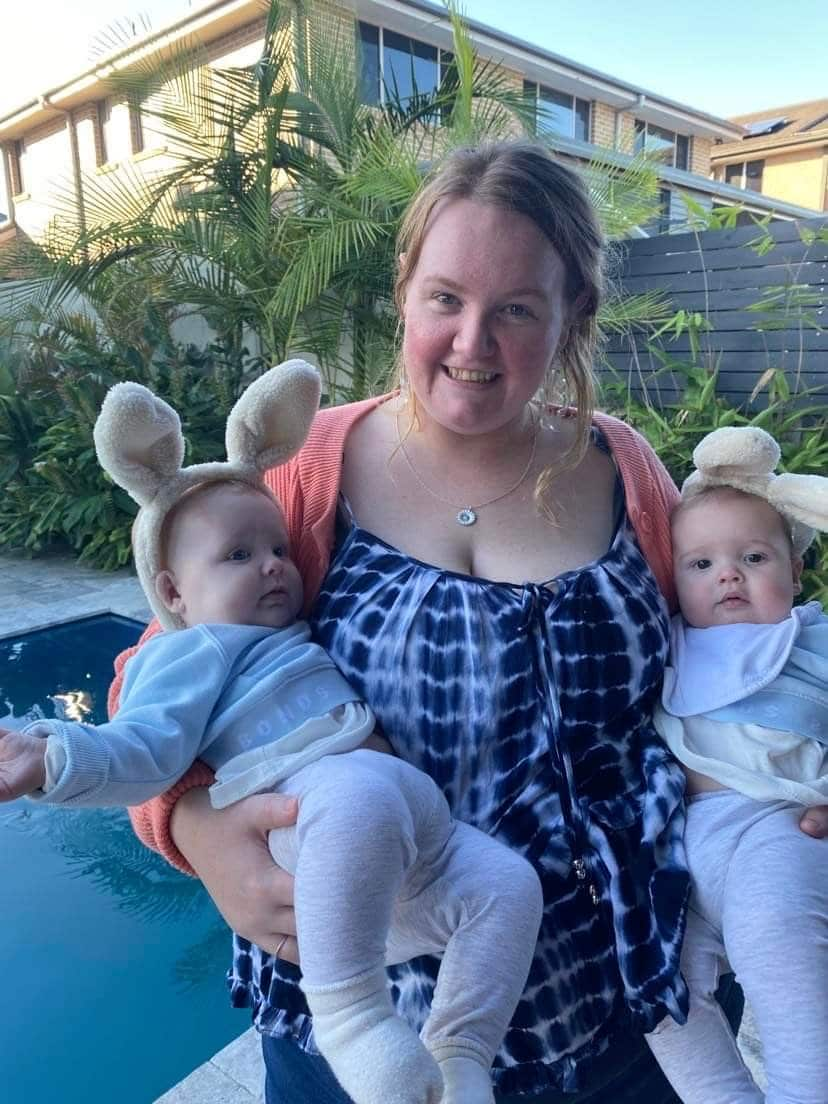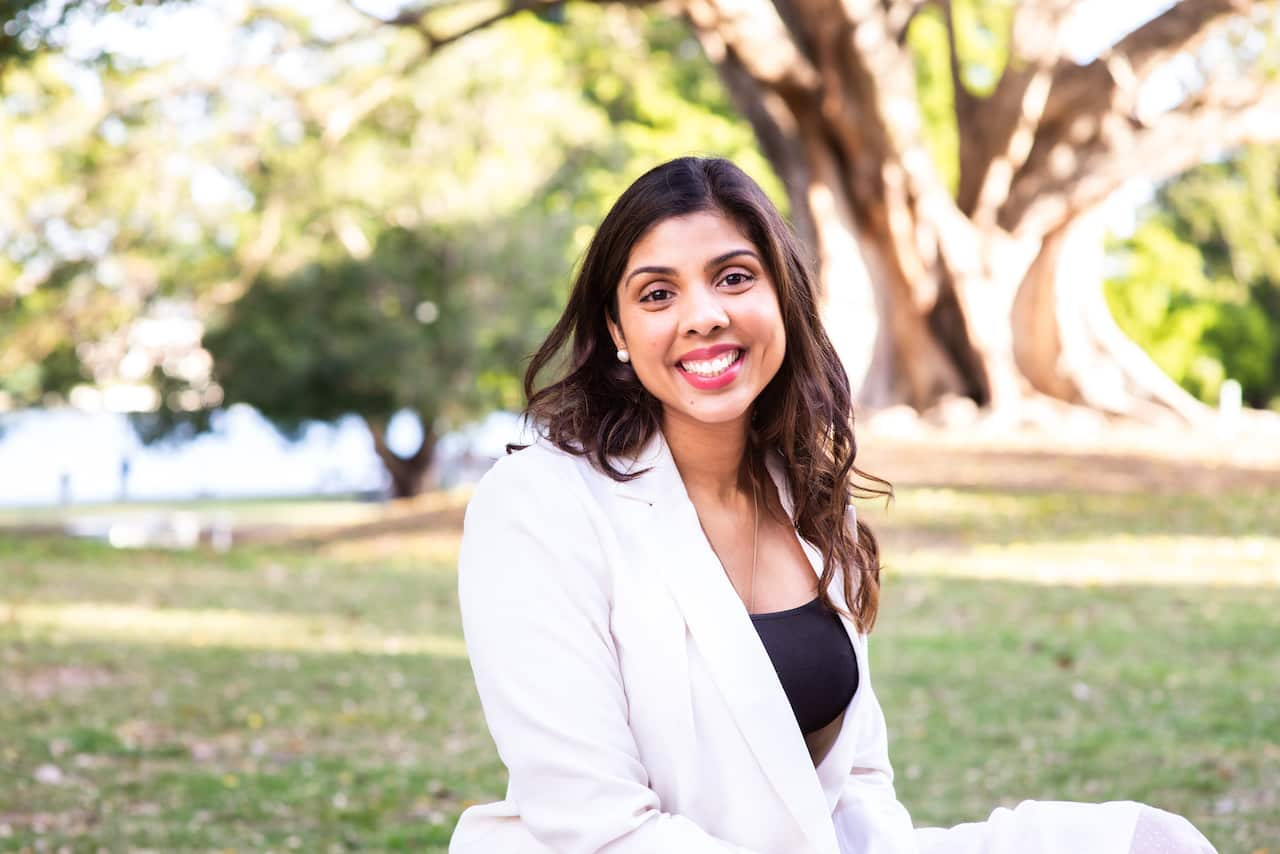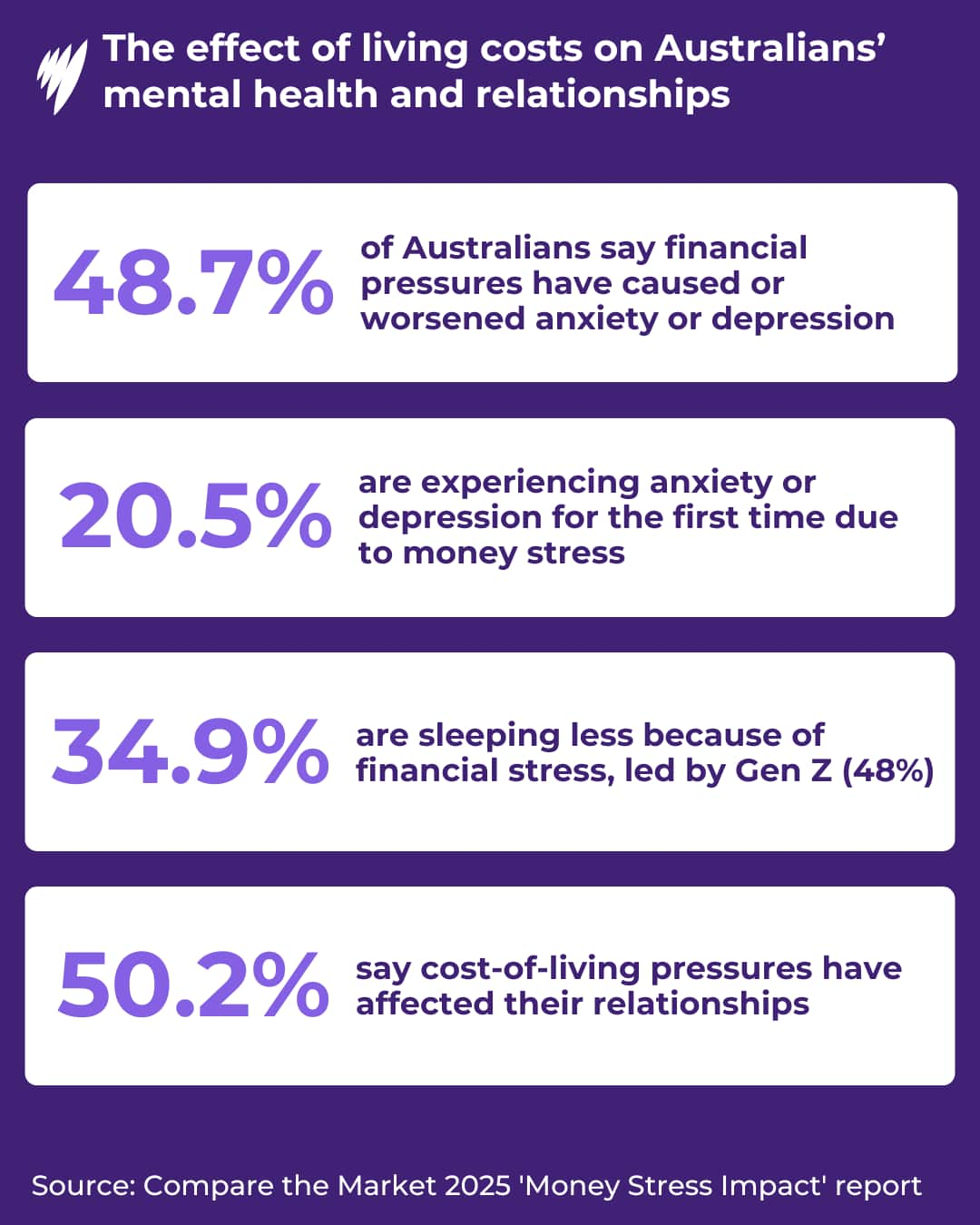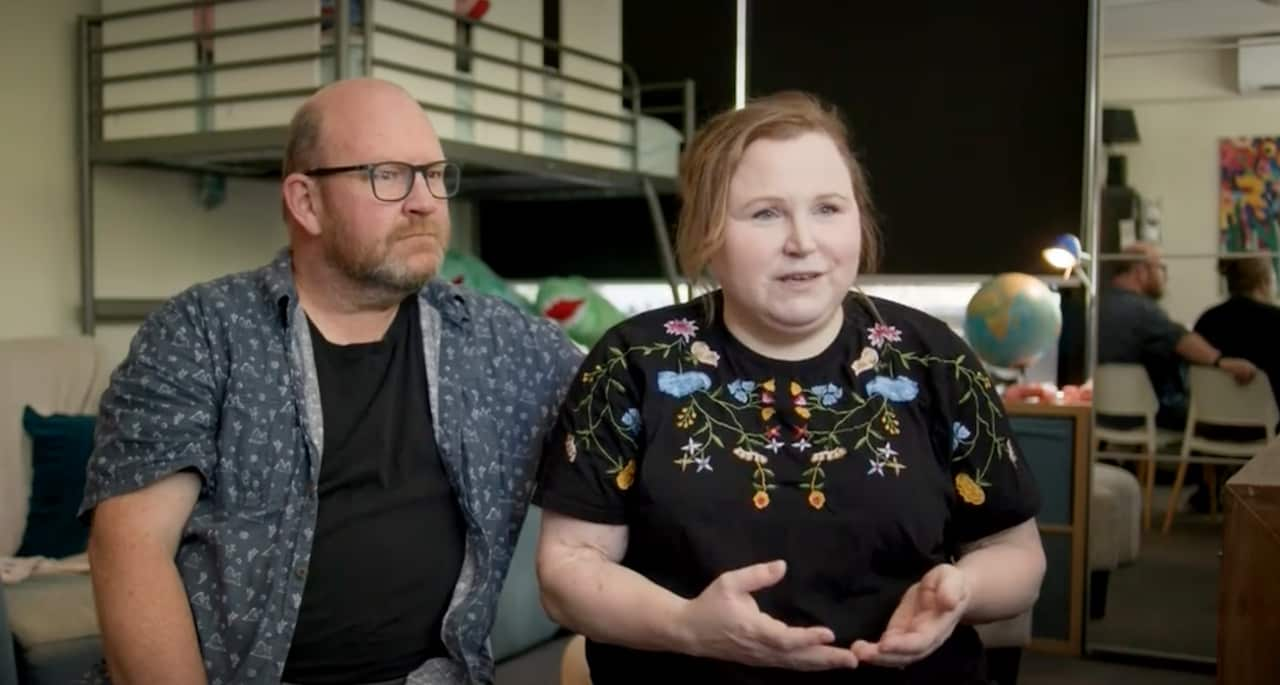Cost of living spikes continue to push living standards down. To learn how Australians are coping, watch Insight episode Tough Time$ on SBS On Demand.
Stream free On Demand

Tough Times
episode • Insight • News And Current Affairs • 52m
episode • Insight • News And Current Affairs • 52m
Laura Wilson and her partner Mitch Stewart worked great jobs, owned their place in Brisbane and were amid wedding planning when they received news that would change their lives forever.
They were expecting twins.
The pregnancy was complex and expensive, and complications continued well after the birth, which left the couple struggling to cope on their own.
"We needed to move in with our babies into my mum's house," Laura told Insight.
Raising twins costs five times more than single children, according to the Australian Multiple Birth Association. This, combined with increased living costs in recent years has further strained the family’s financial — and mental — health.
"We would love to be having psychology sessions for our mental health, GP visits and dentistry but we've had to scale back on that and prioritise our kids' health," Laura said.

With the family forced to cut back, the former marketing professional turned stay-at-home mum said that socialising is what she misses most.
"Going out and getting food is quite social, even if you're doing that by yourself and whilst we can make stuff really nice at home cheaply, I really miss that.
"When you pair that with the fact it's been really hard for me to get a job (since having kids), that's really isolating and has a big impact on my mental health."
The volunteer director of the Australian Multiple Birth Association says that while she’s finding it tough, her organisation is also suffering, with shrinking volunteer numbers taking a serious toll on people's wellbeing.
It's a trend seen throughout Australia.
According to the Bureau of Statistics, volunteering across the country remains significantly below pre-pandemic levels.
Kate Lycett, Deakin University’s lead researcher on the Australian Unity Wellbeing Index, says when no one has time left to give to their communities, the effects are broad.
"A lack of volunteers and the ability to connect in communities will be felt more in poorer areas because people will have to work even more and simply won’t have time," she told Insight.
"I think we'll be seeing inequities grow, which is sad and a failure of our policies."
Australians delaying mental health support
For Brisbane-based psychologist Ornella Moutou, the number of clients she sees has dropped over recent months.
"Everyone's quoted financial concerns," Ornella told Insight.
The 35-year-old charges clients less for a standard consult than the Australian Psychological Society’s suggested fee — a practice she says is common among her peers to stay affordable, but is challenging as living and business costs continue to bite.

Ornella’s absorbed her administration costs, is looking for part time work to supplement her current workdays and is considering working longer hours and weekends.
She’s also had to put her personal aspirations on hold.
"I rent at the moment; I couldn't own a house alone," she said.
"Last year I made the decision to freeze my eggs to ensure that I could have a family. It's quite an expensive process, not just financially, but emotionally as well," she told Insight.
With Australians deprioritising psychology sessions to pay for other expenses, Ornella worries about the inaccessibility of mental health support.
One in five Australians have delayed or avoided seeing a mental health professional due to cost, according to the National Mental Health Commission data published in July 2025.
"Mental health should not be considered a luxury item; it's your health at the end of the day," Ornella said.
A mental health crisis
A Compare the Market 2025 survey found almost half of Australians (48.7 per cent) said cost-of-living pressures had worsened or triggered anxiety and depression, which was impacting their health, sleep and their relationships.
The impact is highest among gen Z (72 per cent) and millennials (56.6 per cent).
Good mental health determines how we’re able to live life, experts say.
Potential consequences of ignoring our mental health include unstable moods, impaired self-esteem, increased risk of physical illness, reduced energy and motivation, issues with sleep and appetite, and issues with concentration and focus.

Kate says Australians who can’t afford basic needs like housing and food are likely to struggle mentally.
"If you don't have those [essential needs] met, you're likely to have low wellbeing, but once you get over a certain point, money probably matters less. But that point is changing because what you used to be able to afford on a median household income in Australia has changed so rapidly in the past few years," the Melbourne-based researcher said.
But the bare necessities aren’t the only things we need; relationships and a sense of purpose are also important, she added.
"The cost-of-living crisis is likely hurting both of these areas of wellbeing. If you don’t have money or time to do the things that give you a sense of purpose, that will knock our levels of wellbeing … And if you can't afford to go and meet people or go out for a coffee, then that's having a real impact on people's relationships.
"People having to work so much just to afford the basics means they don't have time to lean into the community."
Embarrassment and shame
Last Christmas, Catherine and Bob (surnames withheld) had just $40 left in their bank account.
With Bob out of work, the couple have been struggling to support themselves and their two children, a situation that’s placing stress on the family and pressure on Catherine and Bob’s relationship.
"It's hard to plan for your future when you are just surviving day to day," Catherine told Insight.
"I feel behind. I feel like we've gone backwards."

The family lived in a four-bedroom property but when the price went up, they moved into a two-bedroom apartment.
"It’s small, which is stressful. It’s also a little bit embarrassing," Catherine said.
Their son sleeps in the lounge room, they were forced to put their cat down when they discovered his diabetes would cost them $4,000, while their teenage daughter has become anxious about the family finances.
"She worries a lot. She'll ask, how much money do we have? Can I see your bank statement?" Catherine said.
"Even though we try to shield her from that kind of stuff, we can't."
Bob says he feels a sense of shame.
"I'm actually glad that my parents aren't around anymore, that they can see how hard things are for us."
Focusing on the positives
Kate Lycett from Deakin University says there are ways the average Australian can boost their wellbeing and mental health, although she admits that even simple things can seem out of reach for those struggling to get by.
"Leaning into their relationships when possible, exercising, participating in society, looking after their diet ... But it's very hard to tell people to do them when they've got absolutely no time to do them, or they don't have the economic means to do those things," she said.
"So, whilst there is some individual responsibility, we also need the right policy environments to try, and those people can thrive and have those opportunities."
For now, Laura’s grateful her twins no longer need childcare and is hopeful her family’s financial situation improves.
"It's probably going to change when both of us can work full time," she said.
"We're fortunate our kids have been able to get into a community pre-school — that's a lot cheaper than daycare."
Readers seeking support with mental health can contact Beyond Blue on 1300 22 4636. More information is available at beyondblue.org.au.
Embrace Multicultural Mental Health supports people from culturally and linguistically diverse backgrounds.
For the latest from SBS News, download our app and subscribe to our newsletter.
Insight is Australia's leading forum for debate and powerful first-person stories offering a unique perspective on the way we live. Read more about Insight
Have a story or comment? Contact Us


